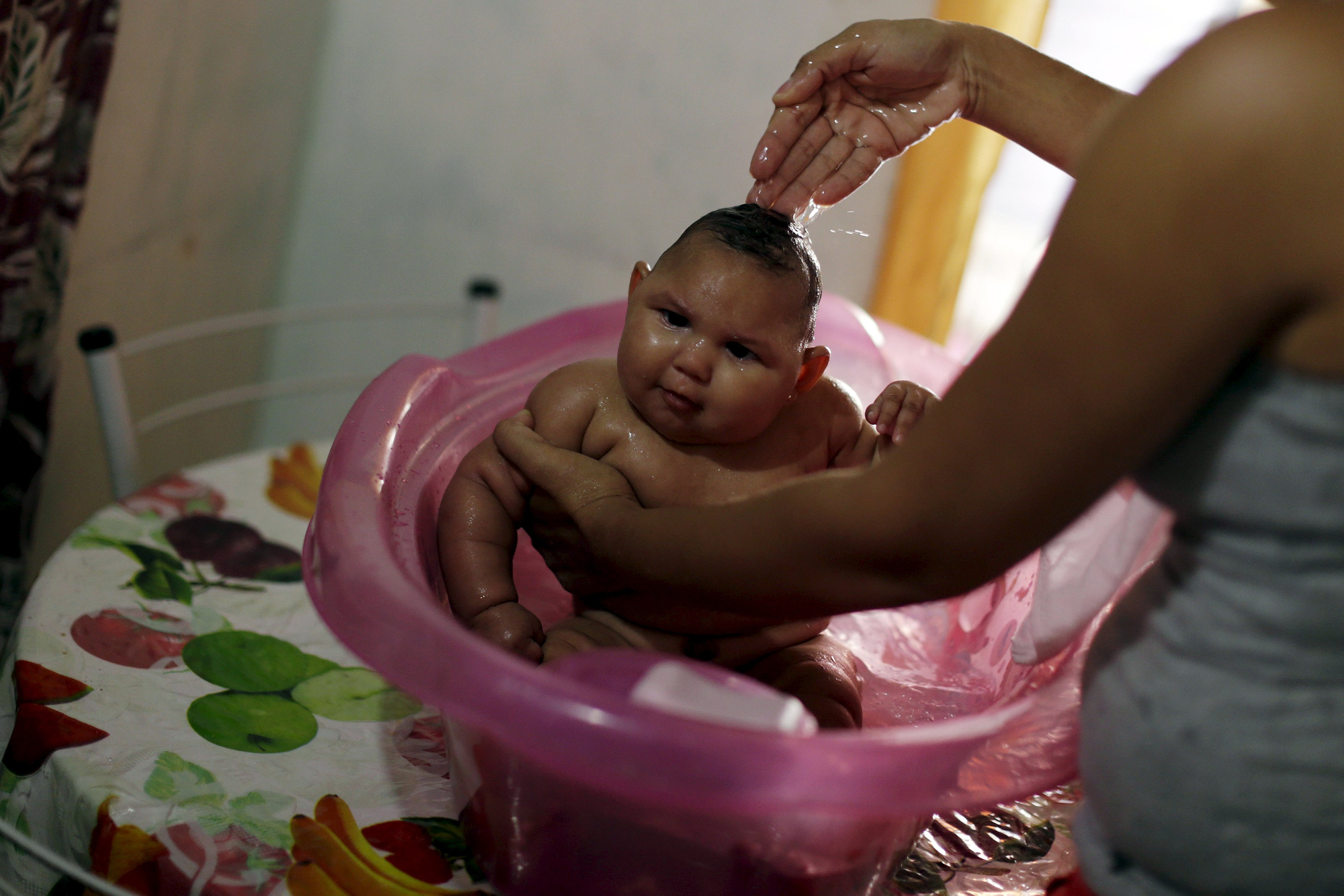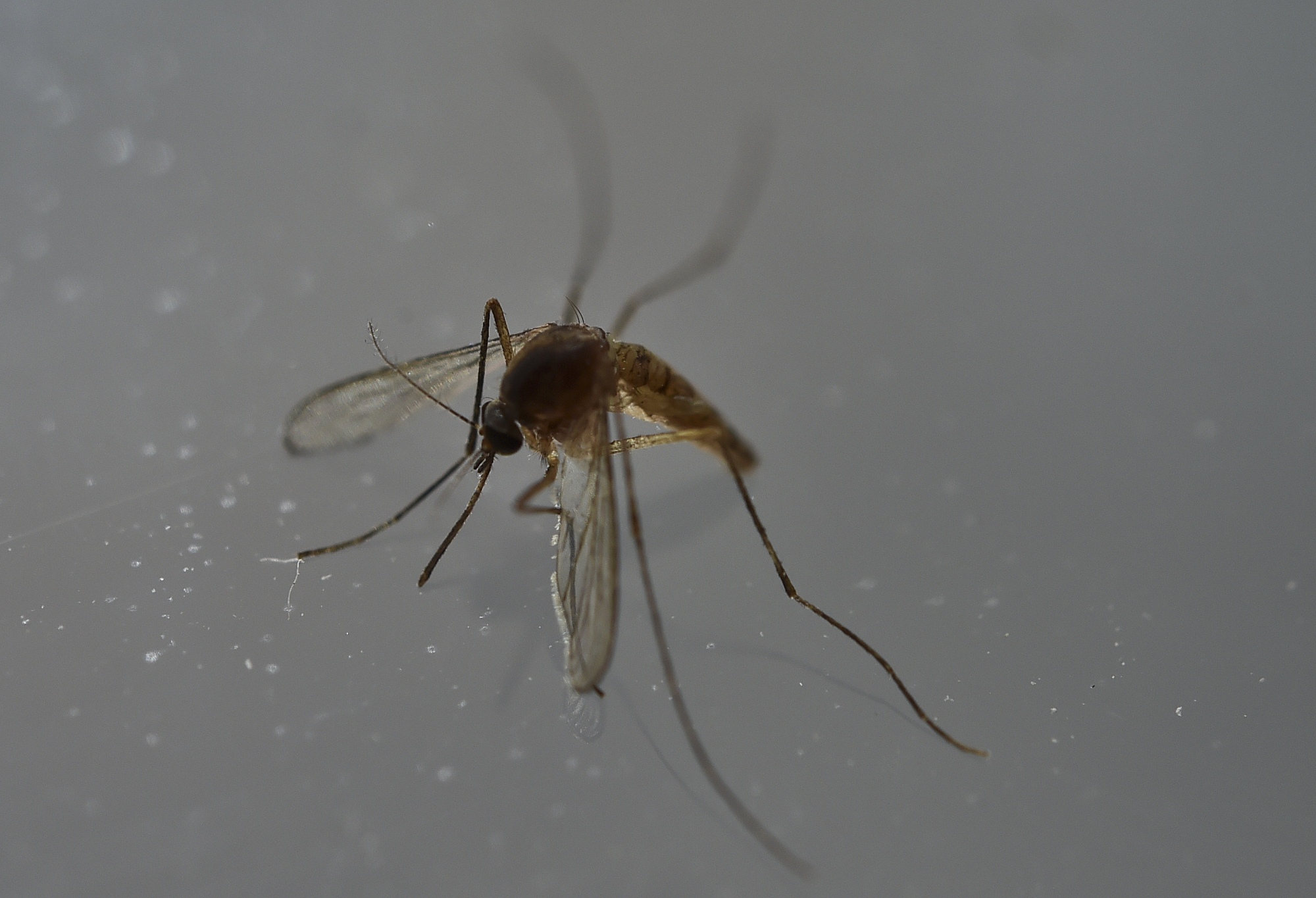Chinese researchers have identified two Zika antibodies from an infected patient that could provide mice with complete protection against the mosquito-borne virus.
The finding could lead to the development of anti-Zika therapies and vaccines for humans.
The researchers isolated immune B cells from the blood of an infected patient who had returned to China from Venezuela. The patient recovered from the virus after treatment, but also provided scientists with a total of 13 antibodies that were confirmed to bind to the virus.
Two of these antibodies, known as Z23 and Z3L1, had the potential to eliminate the Zika virus altogether under laboratory conditions.

A woman bathes her daughter who has microcephaly. / CFP Photo
Yan Jinghua, with the Chinese Academy of Sciences' Institute of Microbiology, said the antibodies appear to exclusively target the Zika virus.
"We seldom have a drug with specificity for the treatment of a viral disease. However, this antibody has high specificity for Zika virus. After the mice were infected with Zika, we gave them the antibody therapy. The virus was then completely eliminated."
Structural analysis has suggested that the two antibodies block infection by targeting sites on the virus' envelope protein, which is known to facilitate virus entry into cells.
Unlike other human antibodies under investigation that recognized both Zika and the closely-related dengue virus, the antibodies used in this study are exclusively targeted on Zika. This property could be important in avoiding potential side effects, such as enhanced dengue infection in regions where both viruses are endemic.

CFP Photo
"It's different from chemicals, because you don't know what a drug will target, and it may prove highly toxic. The antibodies used in this study are exclusively targeted on Zika. It has great potential for curing microcephaly," said Yan.
Zika is an infectious disease mainly spread via the bite of mosquitoes. Symptoms may include fever, skin rashes, muscle and joint pain, headache, and red eyes. Infection during pregnancy is believed to cause microcephaly and other brain malformations in some babies. The virus can also be spread through sexual contact.
The study by the Chinese researchers has been published online in the US journal Science Translational Medicine.
(Source: CRI)









